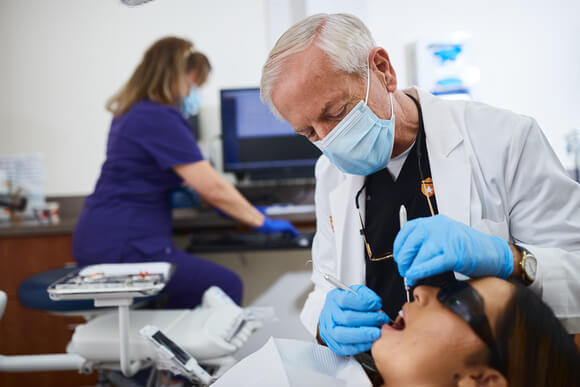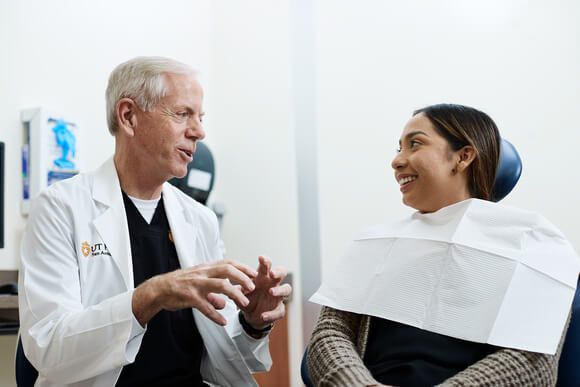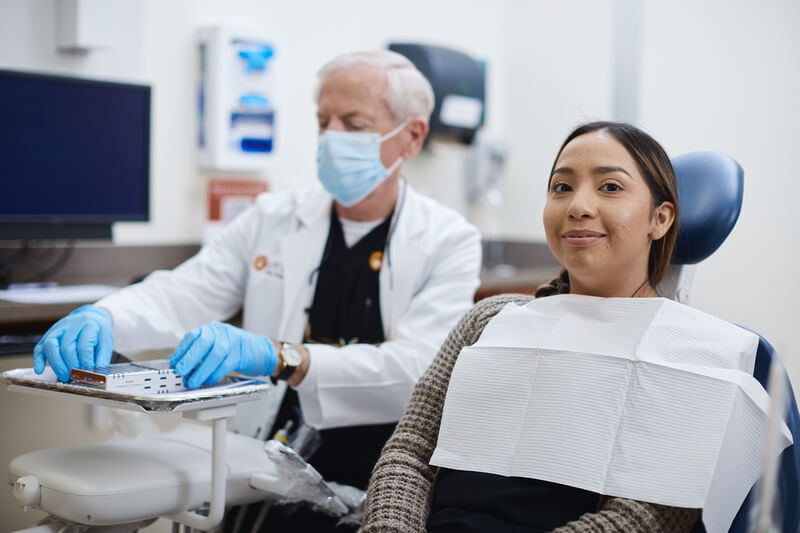Oral and oropharyngeal cancers account for more than 58,000 new cancer cases each year in the U.S. alone, according to the Oral Cancer Foundation. Early detection is crucial for successful treatment, making routine dental check-ups more than about clean teeth and fresh breath.
Dentists can play a vital role in identifying oral cancer at its early stages, significantly improving the odds of their patients overcoming the condition.
What and how?
Oral cancer can affect any part of the mouth, including the lips, tongue, cheeks, floor of the mouth, hard and soft palate or gums.
“Risk factors for developing oral cancer include tobacco from the use of cigarettes, smokeless tobacco, hookah or betel quid,” said Tiffany Tavares, DDS, DMSc. “Alcohol consumption is another risk factor as is a chronically weak immune system, a previous history of cancer or cancer in the family.”

Tavares added that radiation exposure to the head and neck area is another risk factor for oral cancer as well as certain conditions, such as oral lichen planus, a chronic inflammatory disease, and contact with certain human papillomavirus strains, also referred to as HPV, that are sexually transmitted.
“The outer lip is susceptible to cancer as well and the main risk factor is sun exposure,” said Tavares who is a clinical assistant professor of oral medicine at The University of Texas Health Science Center at San Antonio School of Dentistry.
It’s essential to be aware that oral cancer can also occur in individuals with no known risk factors.
Signs and early detection
“Because general dentists and registered dental hygienists see the vast majority of dental patients they are in a unique position to screen for oral cancer,” said Brian Secrist, DDS, a dentist at UT Dentistry’s General Dentistry Clinic.

During a regular dental check-up, dental professionals conduct a comprehensive examination of each patient’s mouth, including a visual inspection of the oral tissues. They are trained to recognize early signs and symptoms of oral cancer, such as lesions, chronic sore throat or hoarseness, difficulty chewing or swallowing and swelling or numbness in the mouth or jaw. Secrist said this training is conducted throughout a dentist’s and dental hygienist’s career through continuing education courses.
One of the key indicators of oral cancer is the presence of lesions, an area of abnormal tissue.
While most mouth sores are harmless and often heal within a week or two, dentists pay close attention to any sores that persist for more than two weeks. These lesions may appear as red or white patches, ulcers, lumps or thickening tissues in the mouth.
“In my opinion it is imperative that both the hygienist and the dentists perform a head and neck cancer screening during their regularly scheduled dental cleaning. It’s painless yet vital in accessing the overall dental health of each patient. If something in the mouth looks suspicious, it needs further investigation whether having another look-see in two to four weeks or immediate referral to the oral medicine team here at UT Dentistry,” said Secrist.
Personal awareness
It’s equally important for individuals to understand how they can lower their risk for developing oral cancer.
 “Practice tobacco cessation in all its forms, avoid alcohol consumption and adopt a healthy diet rich in fruits and vegetables to lower your risk for developing oral cancer,” said Tavares. “To help reduce the risk for lip cancer, avoid sun exposure, apply lip balms with SPF protection and wear hats when exposed to sunlight.”
“Practice tobacco cessation in all its forms, avoid alcohol consumption and adopt a healthy diet rich in fruits and vegetables to lower your risk for developing oral cancer,” said Tavares. “To help reduce the risk for lip cancer, avoid sun exposure, apply lip balms with SPF protection and wear hats when exposed to sunlight.”
By partnering with a dentist for regular oral health care and staying vigilant to any health changes, patients are taking proactive steps to safeguard themselves against oral cancer and ensure early detection and treatment if needed.
“A screening only takes a minute or two and can be lifesaving,” added Secrist.
Visit the UT Dentistry General Dentistry Clinic online or call 210-567-6453 to make a dental appointment today.


